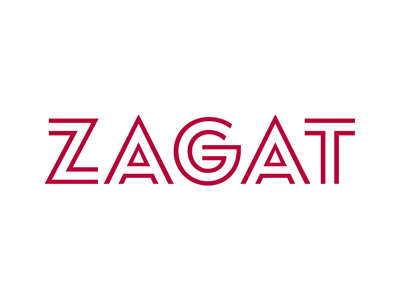Andrew Zimmern On Rallying The Power Of Independent Restaurants

Uniting hundreds of thousands of restaurants to defend millions of jobs.

By Andrew Zimmern as told to Jake Emen
Andrew Zimmern began his career in food working as a cook in restaurants in New York, eventually finding his way to acclaim as a chef in Minneapolis. Since then he has created and hosted a number of TV shows, including Bizarre Foods and What’s Eating America among others. He is a founding member of the Independent Restaurant Coalition, an organization dedicated to lobbying on behalf of the industry and fighting for its survival.
The Independent Restaurant Coalition is about three months old, and we’ve grown to an entity that has given voice to a trillion-dollar industry with over 11 million employees. From an industry that had no voice, and no seat at the table, we’re a force to be reckoned with on the policy side of our governmental efforts.
We had three members with the largest representation at the White House meeting in May with the President. Representative Earl Blumenauer also put forth his Restaurant Act, which is advocating for our position paper that we put out in April to the House and the Senate. Our proposal, available on SaveRestaurants.com, was for the Restaurant Stabilization Act. It would take the Paycheck Protection Program—an eight-week band-aid for an 18-month problem—and actually create a triage system with the stabilization fund sufficient to match that 18-month problem.
In May, House Speaker Nancy Pelosi assured Representative Dean Philips of Minnesota and Representative Chip Roy, Republican of Texas, that she would put a vote on the floor for the part of the CARES Act to deal with payroll protection and other issues that the IRC has been fighting for. So we are just thrilled. Our message is growing, our membership is climbing, our influence is growing, and while there have been public faces of our group, it has been a grassroots effort that has included every single member of our coalition.
It reminds me that food people are just the best doers in the game. They put their heads down, and it’s like attacking a prep list on a busy Friday afternoon in the restaurant, after a monster lunch and you have a lot of work to do that night. We divided into teams—comms and public policy and grassroots and outreach—and we’ve been so effective because everyone has been contributing. It’s just absolutely incredible.
Our group is not left or right, or red or blue—it’s about moving forward. And the biggest takeaway so far is how massive our industry is, and how underrepresented it’s been despite its size. It’s just mind-boggling. The primary industry alone, if you just look at independent restaurants, it’s 11 to 12 million employees, and a trillion dollars. Restaurants, if you just go one step broader, is 15 million employees.
There are 650,000 independent restaurants, and we are a very special industry in several ways. Ninety-five percent of the money that comes into us goes out of us. So we’re more beneficial to the economy than any other business. What we make, we spend.
Look where we spend it—on our payroll. We’re the number-one employer of single moms, the number-one employer of returning citizens, coming out of jails and institutions, we’re the number one or number two employer of immigrants—I think it depends on what decade you’re looking at, but it’s us and agriculture. And even if we’re number two, and number one is agriculture, we’re the number-one resource for first-time job seekers, for last-time job seekers—people who are looking for part-time work who are retired. And what we spend our money on in that supply chain, all of those farmers and winemakers and butchers and dairies. The industries that we support with our dollars are staggering. Add that into where we sit in terms of tourism and what we represent, in terms of culture, it is incredibly powerful.
This is why the IRC is getting support from so many corporate partners. In the coming days, look for some big Fortune 100 companies that you wouldn’t think of being related to independent restaurants, per se, but are adjacent to us, and linking arms in this fight because we interact with their industries so well. Everything from rental cars to credit cards to airline tickets to travel agencies, and that’s just on the tourism side. It’s a massive, massively powerful group.
At the end of the day, this is about saving businesses, and saving businesses means saving jobs. When you have, what’s the latest total, about 21 million unemployed? That number is going to go up, it’ll come back down, and then it’s going to go up again because we’re not going to have a vaccine. We’re not going to have a cure, we’re not going to have anything that restores public confidence anytime soon. So it’s going to get worse.
The largest numbers on that unemployment monthly total have come from our sector. So if we can put 11 to 15 million people back to work? That is a big chunk. Independent restaurants alone are 4 percent of our GDP. This is a big economic fixit. And it is something that I’m praying does not become a political football for people to take advantage of.
This is about helping America get back on its feet because what’s good for the independent restaurant industry is good not only for our big cities, but most importantly, our small towns. Small towns may only have a handful of independent restaurants, but it’s the taxes from that independent restaurant base, and those bars and those other food-adjacent operations—they’re the ones who keep the schools open, and the roads paved, and the snow cleared, and whatever else that the municipality has to afford. Yes, they get state money. Yes, they get federal money, like any other city. But the dollars that keep the lights on—the biggest tax contributors—are independent restaurants. If you have to spend money somewhere, do it in independent restaurants, because I don’t think that anything is healthier for America right now than supporting those people.
I think this is going to impact us more than the 1918 flu, more than World War I or II. I think this is going to wind up being a bigger hinge event for us, in terms of how it fundamentally changes America. It’s a hinge event that we have not seen the likes of nationally since the Civil War. The other issue is that we have a chance to rebuild our food system in America. Not just our restaurant system—our whole food system. So if we don’t take this opportunity to fix the systemic problems that are buried inside of it, the things that were problematic even before COVID-19—if we don’t fix those now, we are really missing that opportunity. In fact, it’s the definition of insanity—doing the same thing over and over again and expecting different results. And that is how we treat the people in our food system.
There is a sexist and gender discrimination element to all of this. There is a racist element too. This touches on immigration issues that have been kicked down the road by five administrations, Republican and Democrat, and we are paying the price for that right now. A great example is in our farm system and our meat plants. You know, there’s no “B” squad—there’s no one on the bench trained and ready to step in to start cutting meat in a factory with hog carcasses flying by you, 30 per minute. We don’t have that. And part of that has to do with our visa system, our immigration system, who we choose to have work, and how we treat them. We’ve abused food workers and farmers in America since our country was founded.
I think our relationship with food here is different. And I think we look away from the things we don’t want to see in America. We can’t make this mistake with our food system. We have to look this in the eye, we have to name the problem, and we have to go and fix this.
Farm workers deserve more money, a better workplace, and paid sick leave, just like everyone else does. And we have to radically alter the economy of our country to take care of our workers because it is always people first. If you don’t, you sometimes get away with it short-term, but then something like this pandemic comes along and spotlights the first place the system cracks.
There’s food issues underneath everything. After 58 years on this planet, I think food is actually a bigger responsibility than some of the other cabinet-level positions. So I advocate for a Food Secretary. You have this massive, massive thing that’s called a Farm Bill, but it’s really a food bill. The biggest piece of it is $750 billion in assistance programs. Let’s put that under a secretary so that the person responsible for doling out that money isn’t also the one who could be caught up in the problems of deciding who grows our food. Let’s get someone in food on our National Security Council. Let’s take hunger, and food waste, and other issues revolving around food, and put it on that same plate as our government-assistance programs relating to it, and put it all on the Food Secretary’s job description. I think it is long overdue for us to have a cabinet-level position. All you have to do is look at this pandemic.
Why aren’t we discussing food during our election cycle? Look at our school lunch program. That should be taken out of the Department of Education. We need a national school lunch program. Why is it that everything in our public schools is paid for—sufficient to educate that child, from transportation, to teacher’s salaries, to books—except food? Yet, we know that kids who are fed a proper diet, kids who are given the right type of food at the right time of day, actually do better in the classroom. They have better outcomes. It is a staggering group of statistics. I think what Dan Giusti and his group Brigaid did, leaving the best job in the food world, as the chef at Noma, to start a nonprofit? To assist in figuring out a real national school program? He’s one of my heroes. We solve the school lunch program, and you unlock a future for America that’s brighter than anything you can imagine.
Get involved and spread the message about independent restaurants. Most people cannot afford to give dollars. If you can afford to give dollars, go to SaveRestaurants.com and contribute. Go to your food banks and make a donation. The ones right in your own communities. Gotta grow where you’re planted, right? Support the change makers, you know, like Food Policy Action and Environmental Working Group and No Kid Hungry, and there’s so many great groups out there. Support them.
But more important maybe than your dollars is spreading the message with everyone on your email list. If we get national awareness of these issues, then we can get everyone to vote their conscience this November. These are the issues we need to talk about as we head into this election year. They are as important as any other issue that’s out there.
